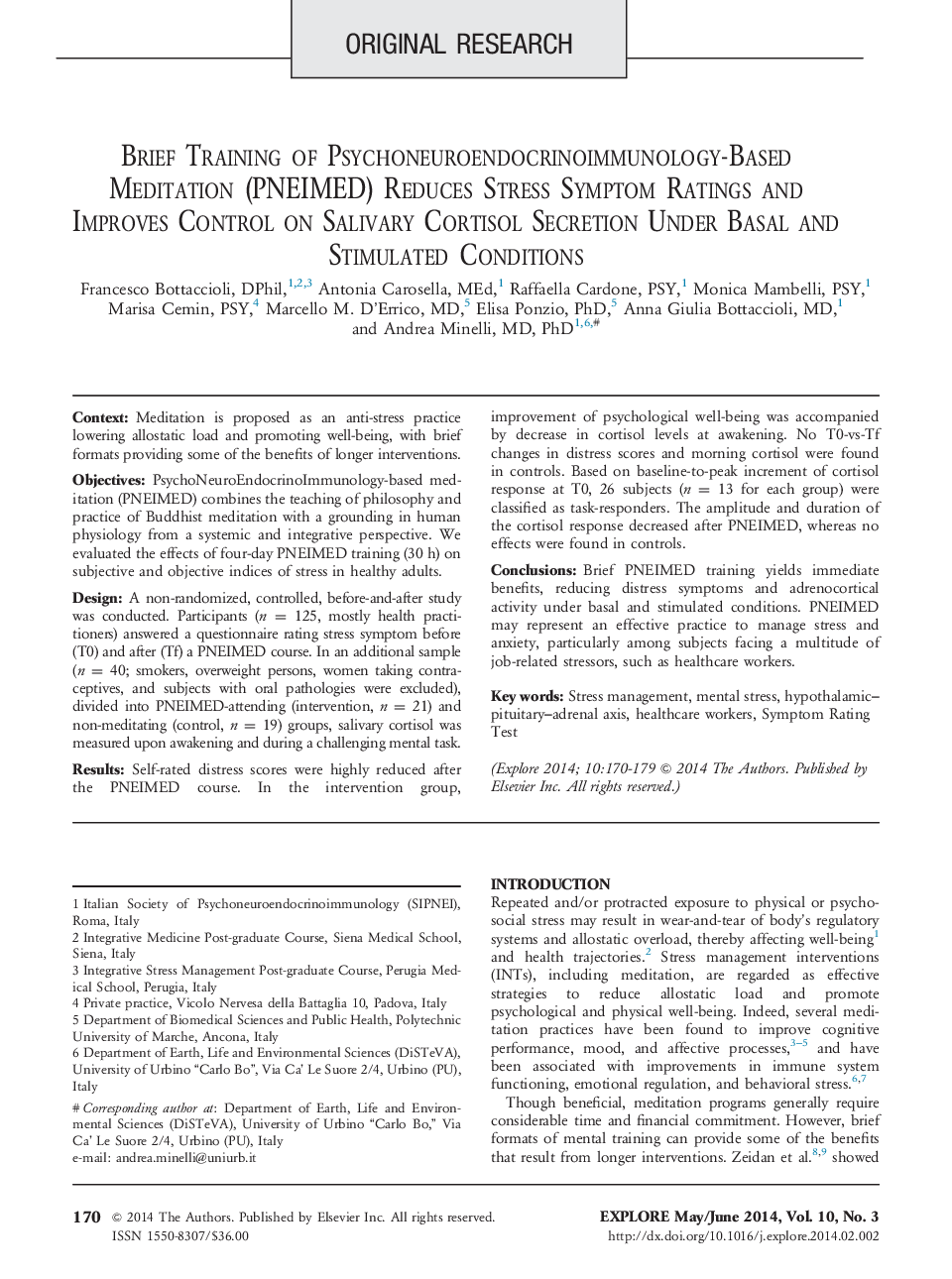| کد مقاله | کد نشریه | سال انتشار | مقاله انگلیسی | نسخه تمام متن |
|---|---|---|---|---|
| 5872125 | 1143011 | 2014 | 10 صفحه PDF | دانلود رایگان |

ContextMeditation is proposed as an anti-stress practice lowering allostatic load and promoting well-being, with brief formats providing some of the benefits of longer interventions.ObjectivesPsychoNeuroEndocrinoImmunology-based meditation (PNEIMED) combines the teaching of philosophy and practice of Buddhist meditation with a grounding in human physiology from a systemic and integrative perspective. We evaluated the effects of four-day PNEIMED training (30Â h) on subjective and objective indices of stress in healthy adults.DesignA non-randomized, controlled, before-and-after study was conducted. Participants (n = 125, mostly health practitioners) answered a questionnaire rating stress symptom before (T0) and after (Tf) a PNEIMED course. In an additional sample (n = 40; smokers, overweight persons, women taking contraceptives, and subjects with oral pathologies were excluded), divided into PNEIMED-attending (intervention, n = 21) and non-meditating (control, n = 19) groups, salivary cortisol was measured upon awakening and during a challenging mental task.ResultsSelf-rated distress scores were highly reduced after the PNEIMED course. In the intervention group, improvement of psychological well-being was accompanied by decrease in cortisol levels at awakening. No T0-vs-Tf changes in distress scores and morning cortisol were found in controls. Based on baseline-to-peak increment of cortisol response at T0, 26 subjects (n = 13 for each group) were classified as task-responders. The amplitude and duration of the cortisol response decreased after PNEIMED, whereas no effects were found in controls.ConclusionsBrief PNEIMED training yields immediate benefits, reducing distress symptoms and adrenocortical activity under basal and stimulated conditions. PNEIMED may represent an effective practice to manage stress and anxiety, particularly among subjects facing a multitude of job-related stressors, such as healthcare workers.
Journal: EXPLORE: The Journal of Science and Healing - Volume 10, Issue 3, MayâJune 2014, Pages 170-179